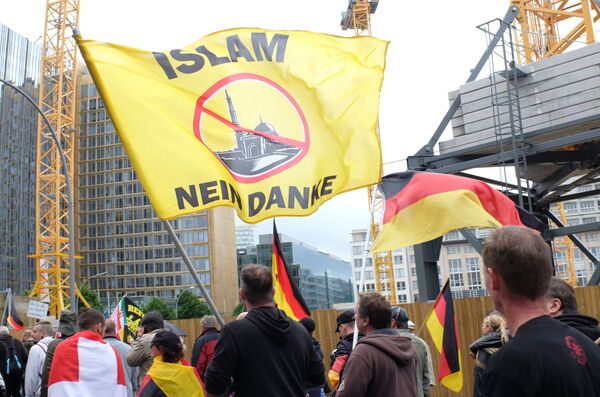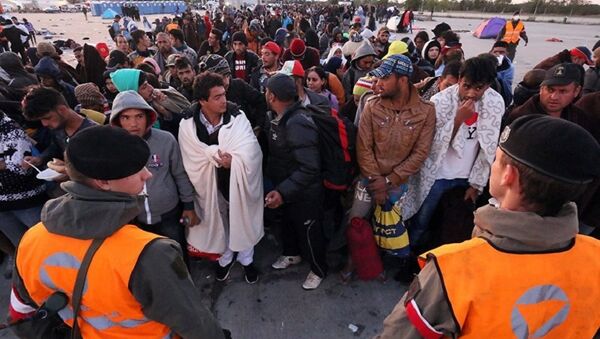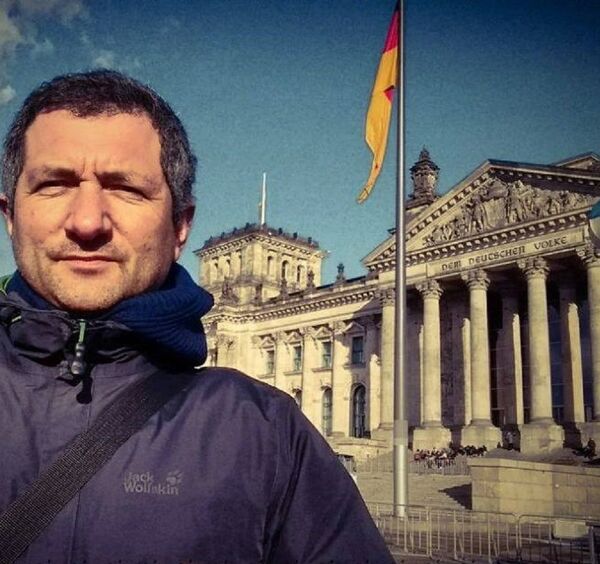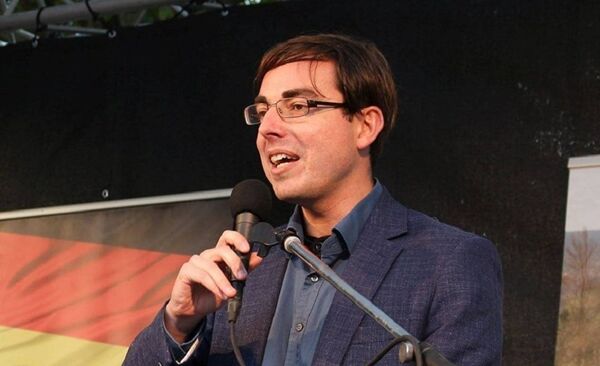"Police Come Here Only in Large Groups"
A few German residents said in an interview with Sputnik that the high level of crimes has resulted in the isolation of migrant enclaves and the emergence of so called "no-go" areas.
"The police are reluctant to go to such places, and if they do, they only go in large groups. Lately, more and more attacks on firefighters and ambulance staff have been registered; the post office refuses to deliver mail to these areas," ex-candidate for the Bundestag and member of the Alternative for Germany party (AfD), Sergey Chernov, said.
A similar point of view has been expressed by Yevgeny Schmidt, who was born in Kazakhstan and is currently residing in Germany.
"An acquaintance of mine, an insurance broker, told me that he gives two euros to kids hanging out nearby if he has to park his car in the neighborhood. He does so to make sure that his car is won't be damaged by vandals. I saw with my own eyes how two guys of Arab-Turkish appearance tried to open the car with an iron rod. It looked like a scene from a Hollywood movie," Yevgeny Schmidt revealed.
"Racism Against White People Goes Unnoticed"
Earlier, German Chancellor Angela Merkel recognized the existence of no-go areas in Germany. However, she did not say exactly where these areas are located.
The topic is being vividly discussed in the ranks of the AfD.
READ MORE: AfD Says German Interior Minister's Plan to Tackle Migration 'Empty Promise'
In an interview with Sputnik, Anton Friesen, a Bundestag MP from the AfD party, called these areas "strongholds of the Islamists."
"German laws do not work there, Sharia reigns instead. These enclaves will continue to expand due to migration of so-called refugees from the Middle East," Frizen said.
While right-wing politicians criticize Merkel for inaction, the Social Democrats and the Greens are annoyed that the Chancellor has acknowledged the existence of the problem.

Many in Germany believe that raising such topics means playing along with neo-fascists and inciting racial prejudice.
"Today you can't talk about racism against white people, it's a taboo. The roots of such an attitude lie in education and upbringing, because we are accustomed to regard the Arabs and black people from Asia as victims of oppression and associate the image of a white person with oppressors," the head of the anti-racist association OLRA, Laurent de Béchade, told Sputnik.
According to him, a recent sociological survey showed that about 15 percent of white French people have become victims of racism at least once in their lifetime.
"This is quite a lot. In addition, there have been horrible cases of violence against white people inspired by racism," the analyst said.
One Option — Move Away
The emergence of ghettos poses a serious danger because it increases the possibility of inter-ethnic clashes between migrant families and local residents. As a result, the latter often prefer to move away.
"In Vienna, there are many kindergartens and schools, where there are no Austrian children anymore," a Ukrainian native and currently Austrian citizen, Andrei Serov, said.
Many parents take their children to other schools; some families even move to other countries like the Czech Republic, Slovakia and Hungary, where there are no refugees.
"It's very popular now to be a border crosser; it means that every day in the morning, people travel from Slovakia or Hungary to Austria for work, and go back in the evening," Andrei Serov added.
READ MORE: Number of Asylum Seekers in EU Down by Almost Half in 2017 — Reports
A migration crisis has hit European countries over the last few years, with many of them struggling to cope with the growing influx of migrants.
In 2017, the number of people seeking asylum in the European Union decreased by 46 percent compared to figures recorded in 2016, when the EU received over 1.2 million asylum applications




